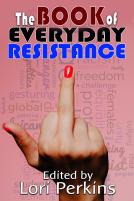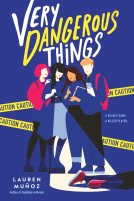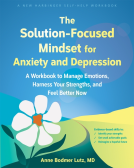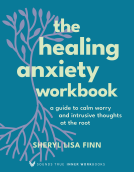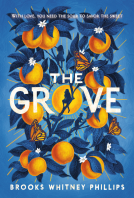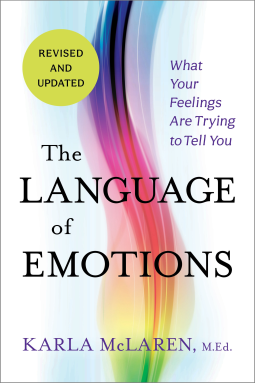
The Language of Emotions
What Your Feelings Are Trying to Tell You: Revised and Updated
by Karla McLaren
This title was previously available on NetGalley and is now archived.
Send NetGalley books directly to your Kindle or Kindle app
1
To read on a Kindle or Kindle app, please add kindle@netgalley.com as an approved email address to receive files in your Amazon account. Click here for step-by-step instructions.
2
Also find your Kindle email address within your Amazon account, and enter it here.
Pub Date Jun 27 2023 | Archive Date Jun 30 2023
Sounds True Publishing | Sounds True
Talking about this book? Use #TheLanguageofEmotions #NetGalley. More hashtag tips!
Description
Featuring significant updates, the new edition of this beloved book takes readers to the heart of each emotion’s powerful gifts and messages.
Every emotion—even shame, anger, and anxiety—brings us vital information and wisdom. Emotions—especially the unwanted and dishonored ones—hold a tremendous amount of energy. “Too often, we either repress our feelings or let them run wild,” says researcher and educator Karla McLaren. “What many of us were never taught are the fundamental skills for honoring and understanding our profound, powerful emotions.” In this new edition of The Language of Emotions, McLaren takes us much deeper than naming or managing our feelings—she teaches us to listen to the messages within each emotion, reflect on their questions, and incorporate their wisdom into our lives.
Enhanced through more than a decade of research and teaching, this edition offers a time-tested emotional guidebook, including:
• How to safely feel and identify emotions—especially the most intense ones
• Practices for working with feelings—including setting boundaries, grounding, and the healing power of complaining consciously
• Building your empathy—five key skills for awakening your emotional genius
• The role of emotions in the resolution of trauma
• Decoding the unique messages, gifts, and insights carried by each emotion
• New to this edition: insights and practices on anxiety, an exploration of loneliness, and much more
Learning the language of our emotions can deepen our self-understanding, improve our intuition, and enhance our relationships. “Emotions aren’t problems to be solved,” teaches McLaren. “If you learn their language, your emotions can become an indispensable source of vitality, personal growth, and profound healing.”
Available Editions
| EDITION | Other Format |
| ISBN | 9781649630421 |
| PRICE | $22.99 (USD) |
| PAGES | 448 |
Available on NetGalley
Featured Reviews
 Reviewer 914314
Reviewer 914314
This book had a lot of interesting and educational facts, and it really helped me. Gonna start doing things differently!
 Reviewer 1121734
Reviewer 1121734
This was a powerful book! It never makes you feel bad about any emotion! The stories along the way added to the books powerful ness. This book has great tips on how to process and express feelings! Very helpful and insightful!
 Samantha K, Bookseller
Samantha K, Bookseller
I’m not sure how/what to say about this book other then I should have read it sooner. I have bookmarked multiple sections to go back to - probably on a regular.
Karla McLaren really did an incredible thing by writing this and giving it to the world to read.
You never really understand how important your own & other peoples emotions really are until this - a total eye opening in all of the best ways. I cannot recommend this enough!
 jc C, Educator
jc C, Educator
The Language of Emotions : What Your Feelings Are Trying to Tell You is a book about learning the language of our emotions and using them as a tool to enhance and guide our lives. The book is extremely interesting and a big eye opener. It will change the way you see and feel your emotions totally. Instead of trying to change them and cover them up you will be curious as to what they are trying to tell you and how you can use them to improve what is going on in your life. It is a good read although I did feel a bit overwhelmed by the amount and depth of the information at times. A well researched book that everyone will benefit from reading.
Firstly, I can see how some readers of The Language of Emotions might criticise it for being "unnecessarily long", or not understand the point of the book, or wonder "does anyone really need a book about emotions?" and so rate it lower than it deserves. I'm a survivor of extreme childhood trauma, living with C-PTSD, and I think this book was written for readers like me, who have been deeply traumatised and literally need to be walked through the names of different emotions, which larger 'family' they correspond to, the messages they're bringing, and how to work with them and work through them. I really feel like I wish I could have learnt about this in school, or in my family, or at any other point in my life. This is the kind of book I can read quickly, recognise the learnings will take some re-reads and some patience to integrate, and then use the book as a reference guide in the future. I can see myself dipping in and out of this book for many years, and working with it practically whenever necessary. I am grateful to the publisher and NetGalley for the opportunity to access an ARC. I would recommend the book to anyone who would like a supportive guiding hand as they try to learn how to heal and work through recovery.
 Bookseller 530055
Bookseller 530055
A guide to understanding your emotions, as well as a better perception of others emotions. For me, this was not a book to sit down and read cover to cover but more to scan over time. There are parts that I can relate to and others sections more suited to other individuals. There is a lot of valuable information and definitely a book I will reference in the future.
"The Language of Emotions" by Karla McLaren stands out as a groundbreaking and insightful exploration into the often misunderstood world of our emotional landscape. McLaren, with remarkable clarity and depth, invites readers to view their emotions not as obstacles to be overcome, but as powerful guides capable of leading them towards a deeper understanding of themselves and their interactions with the world.
McLaren's approach to emotions is revolutionary. She posits that every emotion carries a specific message and purpose, serving as an essential tool for personal growth, communication, and healing. By decoding what our emotions are trying to tell us, McLaren provides a framework for engaging with them in a healthy and productive manner. This perspective is not only refreshing but deeply empowering, offering readers a new lens through which to view their inner lives.
What makes "The Language of Emotions" particularly compelling is McLaren’s ability to synthesize complex psychological concepts into accessible and relatable insights. Her writing is both engaging and compassionate, making readers feel understood and supported as they navigate the often turbulent waters of their emotional worlds. McLaren uses examples that resonate with a wide audience, ensuring that her teachings are applicable to a variety of life experiences and challenges.
One of the book’s greatest strengths is its practicality. Beyond offering a rich theoretical understanding of emotions, McLaren equips readers with concrete tools and strategies for emotional health. From managing anxiety and anger to fostering empathy and joy, her techniques are both effective and grounded in real-world applicability. These practices encourage readers to cultivate a more harmonious relationship with their emotions, leading to greater well-being and resilience.
"The Language of Emotions" is also a testament to McLaren’s deep empathy and respect for the complexity of human experience. She acknowledges the uniqueness of each individual’s emotional journey and offers guidance that is flexible and adaptable to different needs. This inclusive approach ensures that readers from all walks of life can find value and solace in her words.
Moreover, McLaren's work is a call to action for a more emotionally aware society. She underscores the importance of emotional intelligence in building healthier relationships, communities, and cultures. By advocating for a world where emotions are respected and understood, McLaren contributes to a broader movement towards emotional wellness and collective healing.
In conclusion, Karla McLaren's "The Language of Emotions" is a transformative and invaluable resource for anyone looking to deepen their understanding of themselves and navigate their emotional world with grace. It is not only a book about emotions; it is a guide to living a more conscious, connected, and fulfilling life. McLaren’s wisdom and compassion make this book a beacon of light for those seeking to embrace the full spectrum of their emotional experience.
 Reviewer 1056551
Reviewer 1056551
We are taught so much in school- math, science, reading. But one thing we are not educated on is emotions. So many of us cannot identify or access our emotions, are afraid to feel emotions, or are unable to express emotions constructively. This has such a limiting effect on our lives and relationships.
The Language of Emotions is a manual for emotional literacy. It teaches the meaning and purpose of emotions- they are messages containing vital information about our inner states and external circumstances. And they are neutral- no emotion is good or bad. Taken in this context, you can see there is nothing to fear.
My thanks to NetGalley, Sounds True Publishing and Karla McLaren for the opportunity to read and review this book.
Readers who liked this book also liked:
Lori Perkins, Christopher Golden, Jessica Pipp, Michele Hornish, David Freed, Ed Stein, Riki Wilchins
Essays & Collections, Politics & Current Affairs
Sheryl Lisa Finn, MA; Sheryl Paul
Health, Mind & Body, Science, Self-Help
Tanis Allen, LMSW, ACSW
Health, Mind & Body, Self-Help
